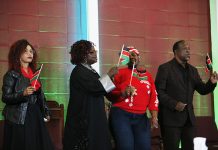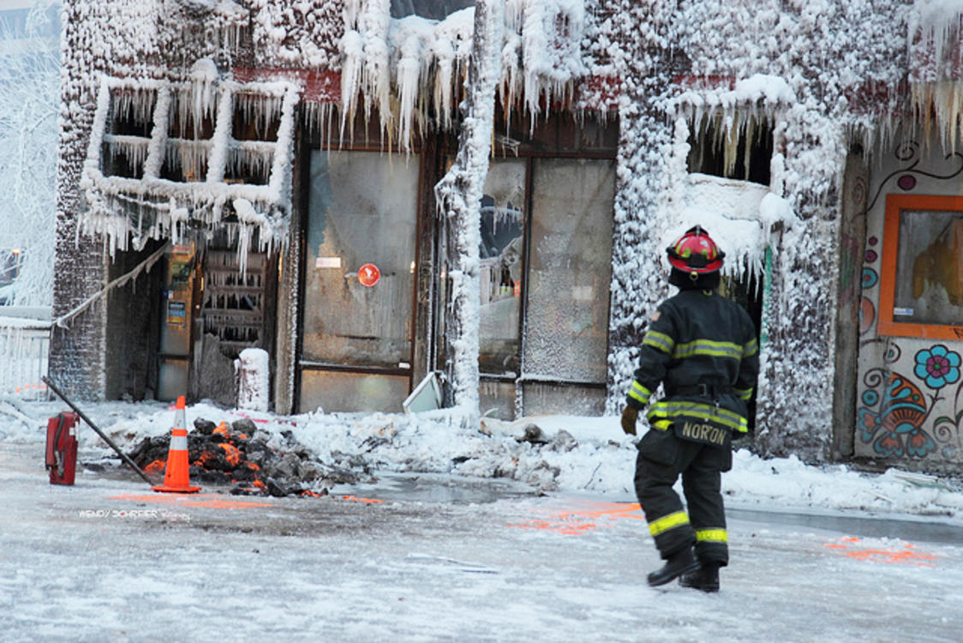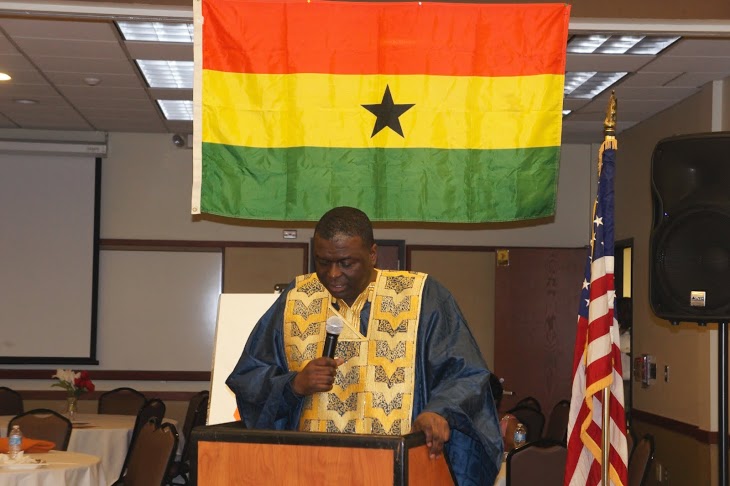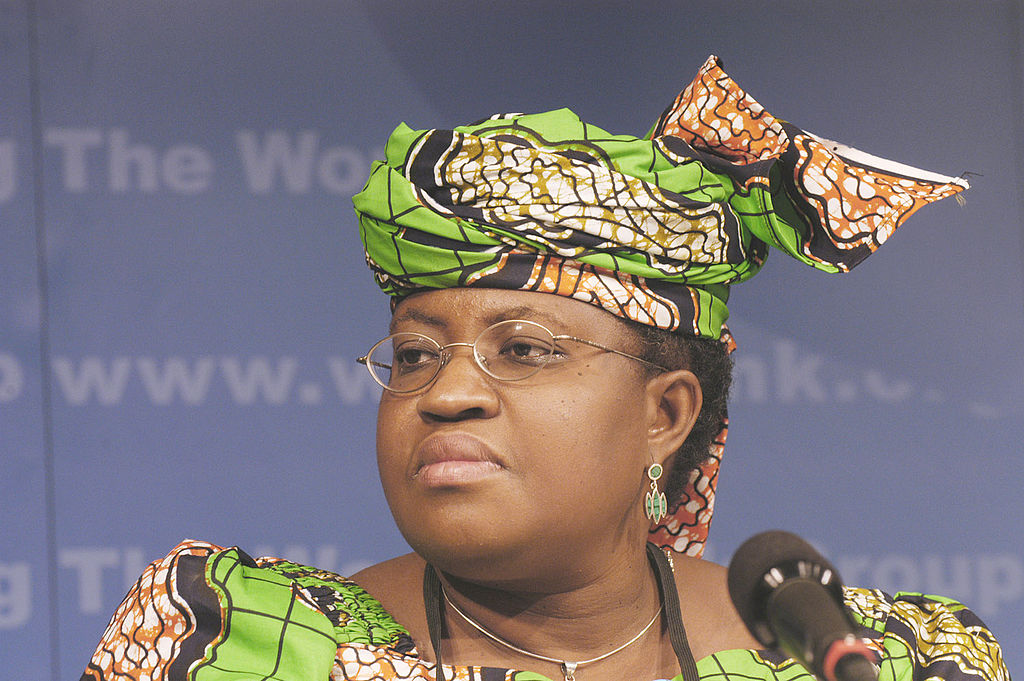
On Saturday Oct. 26, I went around the parking lot of Kenyan Community Church (KCC) in Brooklyn Center to drop off the latest print copies of Mshale. It is something I have done for 20 years on occasional Saturdays, the day of worship for the Seventh-day- Adventist (SDA) church that serves Kenyan immigrants.
Mshale has a contracted distributor who does normal drop-offs to businesses and libraries as soon as the paper comes from the printer. But because we are a modest community newspaper there isn’t a task even I, the publisher, am exempted from carrying out. When there is content in the paper that I feel needs to be delivered directly to increase chance of more readers in the community seeing it, I never hesitate to make the deliveries myself.
In the more than 30 years I have lived in Minnesota, I have seen how the arrival of tens of thousands of African immigrants like me has changed the state. According to the state government, from 2010 to 2021, the number of African immigrants in the Twin Cities metro area increased by nearly 47,000, a 76.5% spike. This growth is why I decided to establish a newspaper to tell the stories of communities that I felt were either being neglected or covered inaccurately by mainstream media.
Years ago, Mshale came up with the term “the Big Five” to refer to the five largest African communities in Minnesota, namely Somalis, Ethiopians, Liberians, Kenyans and Nigerians. Of the five, it is the Kenyans and Nigerians who from time to time need some microtargeting if the message we are getting out is mostly in the print newspaper and not our digital channels. Many of the messages include advertising or editorial content licensed for us to publish only in the print edition. The other three communities have a variety of common places such as community, and shopping centers that guarantee the newspaper will be seen.
For the month of October and November, the biggest advertisers in our print newspaper have been the big healthcare insurers in the state, HealthPartners and Medica, as they market their offerings specific to Medical Assistance/Medicare during this open enrollment period. One of them, Medica, has even created a special URL for Mshale readers www.medica.com/mshale. Therefore, being aware that a lot of seniors in the Kenyan community are on medical assistance, I was determined to ensure as many people as possible saw the message.
For virtually all churches, I place the newspapers in the vestibule area where parishioners can pick up as they leave. At Kenyan Community SDA, one parishioner had expressed his displeasure at having them near the church bulletins and suggested maybe they should be put outside. So, for the month of October, I decided I would place them on parishioners’ cars windshields so they could pick them as they drive off.
This is where trouble started on Oct. 26. After I finished placing the papers on cars, I noticed a white man had been watching me. I had seen the same man on previous Saturdays, but I hadn’t thought much of it. I could tell he was part of the church in some capacity, as he kept a vigilant watch on the parking lot, pacing back and forth between his pickup in the parking lot and the church lobby. The sermon or what was going on inside didn’t seem important to him the few Saturdays I had seen him, as he was constantly in and out of the lobby and into the parking lot. Other colleagues of his I noticed stood by the lobby and could glance at the parking lot to see if someone was coming and still pay attention to the proceedings inside.
I saw him talking to a Kenyan churchgoer I know. I overheard the Kenyan tell him about me.
“He is a nice guy you can talk to him,” the Kenyan told him and signaled me to go over.
The white man told me what I was doing was not allowed in church property. I asked him why and he said it was against church policy. We went back and forth arguing. I told him I had been bringing papers to this church for over two decades, and that it had not been an issue. I asked him for his name, and he said it was Tim Kramm.
Then our conversation escalated into something I hadn’t anticipated. He began to accuse Mshale of promoting a Democratic agenda and said he was “not going to allow it to be distributed around here.” He went on a diatribe about the LGBTQ community and how Mshale should not be promoting such things. He accused Mshale of negative coverage of Donald Trump and Republicans, and that Gov. Tim Walz has failed Minnesota and is allowing the killing of babies. He got even angrier when I rebutted his claims that we do not give Republicans space in the paper.
Apparently angry that I was holding my own with his unfounded accusations, Kramm told me he did not care and that as soon as I left, he was going to take the papers off the cars and throw them in the trash “as I did the last time.”
I told Kramm that was unnecessary and suggested that he could just take them and hand them to me. I told him now that I was aware of his plan, I would not be leaving until church was done for the day. In a huff, he removed the papers from the cars. I asked him more than twice to give me the papers but he said they belonged in the trash. I tried to grab some of them from him and he said I was trying to assault him. He threw them in the dumpster.
I took out my phone and started recording his actions and he seemed unbothered and in fact went about the egregious act with gusto and a smirk on his face.
At this point church was concluding and some of the parishioners were coming out and asking what was going on. I told them that their racist elder did not want them to read the African newspaper they have been reading for decades. By that time, I had gathered from some of the parishioners that the man was a church member and the only white man in a congregation of Black Kenyan immigrants. Some grabbed their Mshale copies from the cars before he could reach them.
Other church elders approached me after they heard what was happening. But instead of advising Kramm to stop what he was doing, they asked me to stop videotaping him. None of them could tell me how it was against church policy to distribute the papers in the parking lot. One of them, who identified himself as the church’s director of communications, told me to stop videotaping. I told them that they should be ashamed of themselves for allowing a white man to come to their church and dictate what they did. I told them there was no way I would want my children around a clearly racist person, and the fact that he felt so comfortable to commit such a despicable act in a church with a 99% Black congregation said a lot of what the church had become.
A few of the parishioners heard my statement that this would end up in the paper and pleaded that I do not publish the account of what took place because “it will harm the church.” But I informed them that it would be unethical for me not to alert the community of what the church had allowed in their midst.
I drove off.
It really pains me to have to write this, not only because we journalists don’t like to be the story, but also because I am an immigrant from Kenya. Even though I’m not an Adventist, KCC is a church I have watched with pride as it grew into the premier house of worship for the Kenyan community. It was the first Kenyan church to buy its own building. I have been one of those who have promoted its historical role in the establishment of various churches in the state which has now become routine. A church buying its building is no longer a novelty.
In fact, as often happens I get calls from Kenyan government officials and other visiting dignitaries on where they should go and meet Kenyans and KCC is where I have referred them to and I have taken some there myself. In fact, as recently as two years ago, I was the lead on the largest mobile consular operation for Kenyans in the state by the Kenya Embassy in Washington, DC, and I was the one that insisted that the operation be carried out at KCC. The check that paid for the rental of the hall where it took place was paid for by Mshale from our own funds.
I naively was expecting a call from church leadership within a few days of my exchange at the parking lot with Kramm. When no call came, I began to fear that KCC had allowed people like Kramm – who openly support white supremacy – to treat the church as though it belongs to them.
But as journalists we must take the initiative to make sure that people get an opportunity to respond before we publish. That is why I decided to call the church pastor to find out if he was informed about what took place and to get some comment from him. Thankfully, the pastor spoke with me and reassured me that Kramm was not representing the church.
Kramm has a history of conducting himself in such a manner. In 2013, he pleaded guilty and was convicted on a lesser count of disorderly conduct, in a plea bargain agreement that saw the more serious charge of obstruction of a legal process for interfering with a peace officer dropped. It’s unclear what the nature of exact incident was, but court records show it was in a domestic situation involving a family member with the same last name, and that he made a threat of violence.
Pastor Simeon Mokaya Momanyi has been leading the KCC congregation for the last three years. He was pastor in 2021 when a Brooklyn Center police officer shot and killed Daunte Wright. The church, which shares a property line with the police station, became a refuge for protestors fleeing teargas.
Momanyi said he was shocked by my treatment and said there was no such policy that would bar Mshale newspapers from being distributed on church property. He offered his apologies for my treatment.
“Those who told you that are simply misinformed as the paper has very valuable information our members need,” Momanyi said.
He added that if those who were supporting Kramm during my altercation with him that there is indeed such a policy had called him or Ezra Kenyanya, the youth pastor, they would have informed them that there indeed was no such policy.
He said he was not aware some had expressed concern about the papers being placed in the lobby, but that would be a minority view and it could just be they do not want them next to official church materials. In that case he suggested I resume placing them in the lobby for consistency.
About Tom Gitaa Gitaa, Editor-in-Chief
Born and raised in Kenya's coastal city of Mombasa, Tom is the Founder, Editor-in-Chief and Publisher of Mshale which has been reporting on the news and culture of African immigrants in the United States since 1995. He has a BA in Business from Metro State University and a Public Leadership Credential from Harvard’s Kennedy School of Government. He was the original host of Talking Drum, the signature current affairs show on the African Broadcasting Network (ABN-America), which was available nationwide in the United States via the Dish Network satellite service. On the show, he interviewed Nobel laureates such as 2004 Nobel Peace prize winner, Professor Wangari Maathai, the first woman from Africa to win the peace prize and heads of states. Tom has served and chaired various boards including Global Minnesota (formerly Minnesota International Center), the sixth largest World Affairs Council in the United States. He has previously served as the first Black President of the Board of Directors at Books for Africa. He also serves on the boards of New Vision Foundation and the Minnesota Multicultural Media Consortium. He has previously served two terms on the board of the United Nations Association. An avid runner, he retired from running full marathons after turning 50 and now only focuses on training for half marathons.
- Web |
- More Posts(455)











